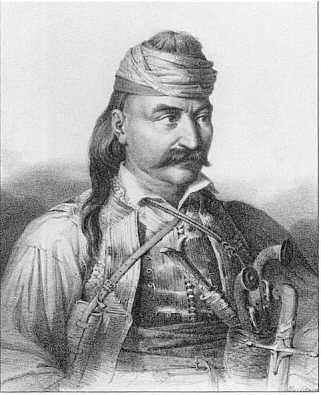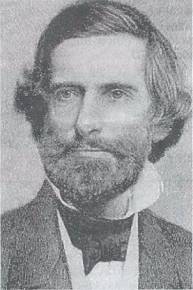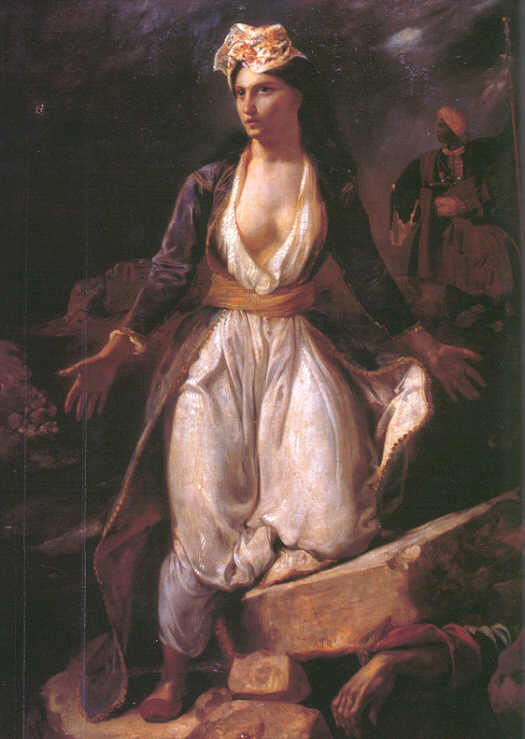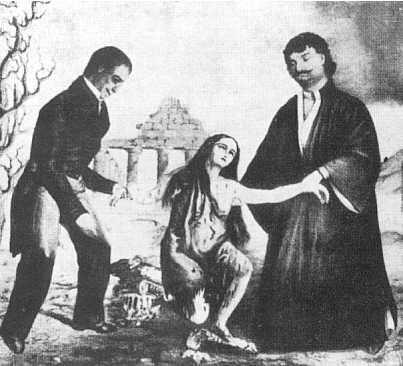Fall of Constantinople - 400 years opression

The Greek Revolution of 1821 was a nation's triumph, a romantic story of heroic action. It was a tragedy, a miracle, a myth.
As Sultan Mehmet II captured Constantinople in Tuesday 29 May 1453, marked the end of Hellenism or Romiosini (Romania). Greeks (Hellenes) who in ancient times, developed the best civilisation with names as Platon, Socrates, Aristotle, Hyppocrates, Diogenes, Herodotus, Thoukidides, were now slaves. Greeks (Romaeoi), who in middle ages with the glorious Eastern Empire protected the Christianity and the Greek Civilisation from barbarians with names as Nicephorus Phocas, Basil II Bulgaroctonus, Alexius Comnenus, were now in disgrace. Minor Asia the birthplace of philosophy, Athina the birthplace of Democracy, Constantinople the center of Orthodoxy, Macedonia the birthplace of Alexander the Great, Sparta the homeland of Leonidas were polluted by the presence of the asian savages.
After the conquest of Byzantine Empire, Mehmet II forsaw that his christian subjects would help to organise his huge state. Commerce, practical arts, administration, science were unknown to ottomans whose only care was the war. So he appointed Georgios Yennadhios as Patriarch in Constantinople and leader of all Greeks (Romaeoi) while he was guaranteed personal inviolability, freedom of movement and exemption from taxes. The Greek Orthodox Church survived, and it was this Church who preserved the traditions and the greek language and since Language means Nation, according to Adhamantios Korais, it was the Orthodox Church who preserved the national identity of Greeks.
Ottoman occupation was very harsh for christians and meant not only the destruction on the grounds of thousands monasteries, churches, monuments, burning of documents, manuscripts, icons but also meant heavy taxation for non muslim subjects, hard work on the fields and illiteracy. Many christians became muslims to be saved from the cruel behavior from the state. A century after the fall of Constantinople a professor from Tubingen, Martin Crusius, on a visit to Greece lamented: 'In all Greece studies nowhere flourish. They have no public academies or professors, except for the most trivial schools in which the boys are taught to read the Horologion, the Psalter and other books which are used in the lithurgy. But amongst the priests and monks those who really understand these books are very few indeed. Historian Thanasis Petsalis - Diomidis wrote: 'In 1630 there isn't not even a single organized school in Greece. Only one exists in Constantinople and this is the Patriarchical School.' Patriarch Kyrillos, in 1628 imported a press machine from Great Britain to print books in the greek language, but after only two years of function, the machine was destroyed by the janissaries. Church remained in close touch with the people, and taught, many times in secret, the boys the language of their fathers. Everybody in Greece knows the rhyme, that boys sung when, secretly in night were going to secret schools krufa scholia to be educated:
Fengaraki mo lampro - Little moon, so bright and cool
fegge mou na perpato - Light me on my way to school
na pigaino sto scholio - Where to study I am free
na matheno grammata - And God's word is taught to me.
grammata spoudasmata
tou theou ta pragmata.
One burden unbearable for non muslim subjects was the heavy taxation. Greek peasants  worked as tenants on land owned by an individual landlord or the state and they had to pay taxes for the products they produced. Also Sultan guaranteed their lives for a year as long as they paid the harach, the poll tax to the central government while a major part of their taxes was seized by the corrupted civil servants. The most glaring example of a local potentate was Ali Pasha of Ioannina, who increased his private estates at the expense of the long-suffering peasants. He used to put pressure on the villagers to sell to him by driving them into debt at high interest rates through extraordinary exactions, and also by quartering his Albanian soldiers in their houses. When the peasants could no longer pay their debts, Ali made the village his chiftlik and the villagers in effect his serfs. In 1821, Ali controlled 915 chiftliks. So Greeks fled many to Europe, others to the mountains where they became brigands klephtes. Deserted villages became a common sight inside Ottoman Empire.
worked as tenants on land owned by an individual landlord or the state and they had to pay taxes for the products they produced. Also Sultan guaranteed their lives for a year as long as they paid the harach, the poll tax to the central government while a major part of their taxes was seized by the corrupted civil servants. The most glaring example of a local potentate was Ali Pasha of Ioannina, who increased his private estates at the expense of the long-suffering peasants. He used to put pressure on the villagers to sell to him by driving them into debt at high interest rates through extraordinary exactions, and also by quartering his Albanian soldiers in their houses. When the peasants could no longer pay their debts, Ali made the village his chiftlik and the villagers in effect his serfs. In 1821, Ali controlled 915 chiftliks. So Greeks fled many to Europe, others to the mountains where they became brigands klephtes. Deserted villages became a common sight inside Ottoman Empire. 
Another burden, memory of which still smoulders in the greek national consciousness, was the turkish system of devschirme: the forcible conscription of young men and their removal to Istanbul to join the imperial service, especially in a military role as janissaries. The Paidomazoma turned the young christians to fanatic muslim soldiers. After a long and specialized training, these children became the Sultan's most loyal vassals. He had the right over their life. They also constituted the most competent army, not only within the Empire, but in the whole of Europe. Also, beautiful christian girls were taken by force to the harems of the commanders pashas. Ali Pasha had thousands of women in his harems. He had dozens of spies, who searched for beautiful boys and girls. It is not an exaggeration to say that the modern turks are greeks islamized. In 1705 the official sent to Naoussa of Macedonia to draft new janissaries, was killed, while the crowd shouted their resistance to giving up their sons. The infidel parents were beheaded and their severed heads were displayed in the city before sent to the governor of Thessalonika. According to historian Paparighopoulos 1 million boys were transformed to Janissaries during the dark years of ottoman occupation.
Greeks, during ottoman occupation had tried many revolts, but without success, because they were local and not properly organized. Immediately, after the fall of Constantinople, Peloponness revolted, in 1463. Patra, Mystras, Korinthos were temporarily liberated. Greeks counted on the venetian help, or any european help but actually Europeans didn't help the local people to ged rid of their oppressors. Nevertheless Mani remained autonomous during turkish rule. Revolts took place also in Macedonia, Epirus, Crete. Suli also remained autonomous and Sfakia of Crete the same. The mountains, where klephtes lived, were always free:
Ego veziri den psifo, pasha den proskinao-I don't care for vezirs and I don't kowtow pashas
pasha eho to ntoufeki mou, veziri to spathi mou.-My gun is my pasha and my sword is my vezir
Also in 1571, when turkish fleet was defeated in the Lepando (Nafpaktos) naval battle, greeks again in many places revolted against the oppressor. Dionysios Skulosophos bishop of Thesally revolted in 17th century and almost managed to conquer Ioannina. He failed and he was skinned alive. His friend Serafeim, bishop of Fanari, refused to become muslim and was tortured to death. The last important insurrections took place in Peloponness in 1769, when Russians promised to help, but they sent the brothers Orloffs with only 1000 russian soldiers and a few ships. Greeks this time trusted Russians but in vain. Turkoalbanians suppressed the revolution and deserted many cities and villages. And the same happened in 1790 with the revolt of Lampros Katsonis. After the French Revolution in 1789, Hellenes transferred their hopes to Napoleon Bonaparte. But soon they knew that they were alone, and only with their own forces they would throw the opressor away.
Three names are associated with the national rousement of ideas of independence. Righas Feraeos, Adamantios Korais and Kosmas Aitolos. Kosmas Aitolos was a monk and taught in 18th century to every village of Macedonia, Epirus and Thessaly. He said to people that schools must be built first and then all the others. He was betrayed by Jews and was strangled by the pasha of Veration in Northern Epirus, in 1779. Rigas Feraeos or Velestinlis was born in 1757 in the Velestino or Phere of Thessaly. After a quarrel with a turk, he ran away and went to Wallachia, where he became secretary of an Austian baron who brought him to Vienna in 1790. Vienna, as almost all the big cities of Europe, had a big community of Greeks who couldn't suffer the turkish oppresion. Righas publiced many works about sciences, education books but his best works were those who refered to the liberty and the human rights of all people who suffered under tyranical regimes. An Hynm, Thourios that was sang from all Greeks of that time and is still sang today is: 
Shall we live in mountain passes, like warriors of old?-Os pote pallikaria tha zoume sta stena
Shall we live alone like lions, on the top of mountains?-monahoi san liontaria stis rahes, sta vouna?
na feugoume apo ton kosmon gia tin pikri sklavia, na hanoume adelfia, patrida kai goneis,
tous filous, ta paidia mas kai olous tous siggeneis? No! better an hour of freedom, than forty years as slaves-Kallio mias oras eleutheri zoi para saranta hronia sklavia kai fylaki
Righas' ecumenical vision was based aslo on the idea of the supremacy of the law:'let the law be our coutry's only guide.Rhigas proposed as a state's basic principles: Liberty, Equality, Security of life, Security of property, Freedom of speech and of religion. His proposals were very far-sighted. When the government harasses and disdains the rights of the people, then the people should take the arms and punish their tyrants. For his ideas Righas was arrested by dictatorial Austrian authorities, and was handed with seventeen other patriots, to turks. He was betrayed by a greek named Demetrios Oikonomou. (Greece along with the heroes had and has many traitors. Efialtis betrayed Leonidas, Greeks opened the Kerkoporta of Constantinople to the turkish besiegers, Nenekos fought with 2000 greeks on the side of sultan, against the revolutionaries etc.) Righas and his comrades after torture from turks were strangled, on 24 June 1798, in Belgrade.
Adamantios Korais was born in Smyrna, in 1748. In 1788 he reached Paris and fell immediately in love with the city. His passion was reading and foreign languages. He translated ancient greek authors and produced 30 volumes of those translations. His main preoccupation was with education. He encouraged rich greeks to multiply throught Greece schools and libraries. Education would ensure not only the achievement of independence but also the establishment of a proper constitution for the new state.
 In 14th September 1814 three Greeks in the port of Euxenus Pontus, Odessa, set up a secret society whose aim was the liberation of Greece (Romiosini). The names of the three founders were Nikolaos Skouphas, Athanasios Tsakalov and Emmanuel Xanthos while the society was given the name of Friendly Association Philiki Eteria. Their occupation was the commerce. Tsakalov had escaped from Ioannina, when Alis had asked his mother to send him to the palace. The first aim of the Philiki Eteria was to be secret because the spies and the traitors were in large numbers inside the empire. The founders therefore developed a number of codes. Kolokotronis was 118, Kapodistrias was the man of good deeds, Tsar the philanthropist etc. Two things were indispensable: money and members. The first to join was Anagnostopoulos and two rich brothers who lived in Moscow, George And Panayiotis Sekeris. The founders recruited merchants and rich expatriates abroad and many military leaders as Anagnostaras, Theodoros Kolokotronis, Petrobeis Mavromichalis, priests like Papaflessas intellectuals as Anthimos Gazis and only a woman and that was the shipowner Lascarina Bubulina from Spetses. The obvious candidate to lead the Philiki Eteria, was Ioannis Kapodistrias. Kapodistrias was born in Kerkyra island or Corfu, in 1776. In 1808, he was invited to St Petersburg and in 1815 he was appointed by Tsar Alexandros as foreign minister. Kapodistrias was very well informed about the situation in Europe, where the Holy Alliance, opposed to any revolutionary movement and was sure that any greek attempt would fail with result the loss of lives of thousands of innocent people. The alternative candidate was Alexandros Ipsilantis, a gallant soldier who had lost an arm in Russian service, he was very rich and was an aide-de-camp of the Tsar. He accepted immediately:I would gladly make any sacrifice, even of my wealth or myself for my homeland (patrida).
In 14th September 1814 three Greeks in the port of Euxenus Pontus, Odessa, set up a secret society whose aim was the liberation of Greece (Romiosini). The names of the three founders were Nikolaos Skouphas, Athanasios Tsakalov and Emmanuel Xanthos while the society was given the name of Friendly Association Philiki Eteria. Their occupation was the commerce. Tsakalov had escaped from Ioannina, when Alis had asked his mother to send him to the palace. The first aim of the Philiki Eteria was to be secret because the spies and the traitors were in large numbers inside the empire. The founders therefore developed a number of codes. Kolokotronis was 118, Kapodistrias was the man of good deeds, Tsar the philanthropist etc. Two things were indispensable: money and members. The first to join was Anagnostopoulos and two rich brothers who lived in Moscow, George And Panayiotis Sekeris. The founders recruited merchants and rich expatriates abroad and many military leaders as Anagnostaras, Theodoros Kolokotronis, Petrobeis Mavromichalis, priests like Papaflessas intellectuals as Anthimos Gazis and only a woman and that was the shipowner Lascarina Bubulina from Spetses. The obvious candidate to lead the Philiki Eteria, was Ioannis Kapodistrias. Kapodistrias was born in Kerkyra island or Corfu, in 1776. In 1808, he was invited to St Petersburg and in 1815 he was appointed by Tsar Alexandros as foreign minister. Kapodistrias was very well informed about the situation in Europe, where the Holy Alliance, opposed to any revolutionary movement and was sure that any greek attempt would fail with result the loss of lives of thousands of innocent people. The alternative candidate was Alexandros Ipsilantis, a gallant soldier who had lost an arm in Russian service, he was very rich and was an aide-de-camp of the Tsar. He accepted immediately:I would gladly make any sacrifice, even of my wealth or myself for my homeland (patrida). 
A person that played a significant role in the course of the revolution was the notorious Ali Pasha of Ioannina. Ali was born in 1750 in Albania. Ali's family was a family of criminals and thieves. The background of his childhood was the struggle for power at any cost, and the ruthless elimination of opponents. He became guardian of passes derben aga in 1778, for the whole central Greece Rumeli. He established a network of armed bands and through illegal exactions and assassinations, he acquired a fortune. In the following years Ali led his Albanian warriors on campaigns of widespread pillaging and extortion. In 1784 he was appointed governor pashas of Delbino and in 1787 governor of Ioannina. From this point he expanded his domain to Rumeli, Albania and even to Peloponesse. He became the most powerfull local despot. His ambitions were even to create an independent state with Albanians and even Greeks as main elements of his state. This was a sparkle of hope for greek subjects of the empire to become independent from the power of the Porte Pili. Ali lived in a resplendently grand style which much impressed his visitors. He owned dozens of palaces, had thousands of women in his harems, a large network of spies and of course a powerful army. In this army he used many greeks as Georgios Karaiskaikis and Odysseas Androutsos. 
Only one small mountainous area defied Ali's power. And this was the Heroic Sulli. In 16th century, christians from Epirus who couldn't tolerate turkish tyranny settled to mountains of Suli (east of Parga harbour), where they fought against the oppressor remaing free and independent. Suli lies over the river Acheron and lake Acherousia where in the greek mythology was the pass for underworld Hades. Suliots had as main occupation the stockbreeding and of course the war. Ali attacked Suli many times without success. But suliiots with their brave leaders Georgius Botsares, Lambros Tzavelas, Dimos Drakos had always victories. Finally cracks in the solidarity of the clans had begun to appear. Botsaris family came in quarrel with the Tzavellas family. So in December 1803, after years of blockade, Suliots starving and exhausted, fought their last battle. The monk Samuel blowed himself with many suliots in the stronghold of Kughi. Suliot women jumped with their children from the rock of Zalongo, in order to avoid capture by the Turks.
In 1820, Ali was a powerful man and Ioannina a rich and prosperous city. But his star began to go down, when Sultan decide to use force against him. This was the best time for greeks. The civil war between turks that followed, gave the chance to Romeioi of Peloponesse and Rumeli to start their insurrection. Sultan sent Ismael pasha to attack Ioannina. Greeks backed Ali, so that the war could be prolonged as much as possible. Especially Suliots who had previously escaped to Corfu, allied to Ali and with Markos Botsaris and Georgios Drakos won many victories around Ioannina. The sultan dismissed Ismael as commander and appointed Hurshit, pasha of Peloponese - Morea as commnder of the forces against Ali. It took Hurshit a year to bring Ali down, a year in which he was unable to spare any forces in the crucial area of Morea. Ali was murdered in the Monastery of Aghios Panteleimon, January 1822.








 worked as tenants on land owned by an individual landlord or the state and they had to pay taxes for the products they produced. Also Sultan guaranteed their lives for a year as long as they paid the harach, the poll tax to the central government while a major part of their taxes was seized by the corrupted civil servants. The most glaring example of a local potentate was
worked as tenants on land owned by an individual landlord or the state and they had to pay taxes for the products they produced. Also Sultan guaranteed their lives for a year as long as they paid the harach, the poll tax to the central government while a major part of their taxes was seized by the corrupted civil servants. The most glaring example of a local potentate was 

 In 14th September 1814 three Greeks in the port of
In 14th September 1814 three Greeks in the port of 

 Όπως είναι πλέον γνωστό σε όλους, ξεκίνησε στη Χάγη, ενώπιον του Διεθνούς Δικαστηρίου, η ακροαματική διαδικασία στην υπόθεση της προσφυγής της ΠΓΔΜ κατά της Ελλάδας για την “αντίρρηση” που – κατά την ΠΓΔΜ – πρόβαλε η Αθήνα στην ένταξή της στο ΝΑΤΟ, κατά τη Σύνοδο Κορυφής που έγινε στο Βουκουρέστι τον Απρίλιο του 2008. Σύμφωνα με τους κανόνες διαδικασίας του Δικαστηρίου τον λόγο έλαβαν πρώτοι οι εκπρόσωποι και οι νομικοί σύμβουλοι της ΠΓΔΜ, ως προσφεύγουσας χώρας.
Όπως είναι πλέον γνωστό σε όλους, ξεκίνησε στη Χάγη, ενώπιον του Διεθνούς Δικαστηρίου, η ακροαματική διαδικασία στην υπόθεση της προσφυγής της ΠΓΔΜ κατά της Ελλάδας για την “αντίρρηση” που – κατά την ΠΓΔΜ – πρόβαλε η Αθήνα στην ένταξή της στο ΝΑΤΟ, κατά τη Σύνοδο Κορυφής που έγινε στο Βουκουρέστι τον Απρίλιο του 2008. Σύμφωνα με τους κανόνες διαδικασίας του Δικαστηρίου τον λόγο έλαβαν πρώτοι οι εκπρόσωποι και οι νομικοί σύμβουλοι της ΠΓΔΜ, ως προσφεύγουσας χώρας.
Showing 6 comments